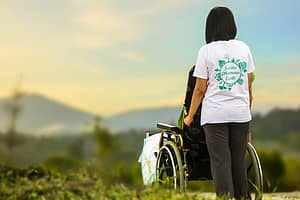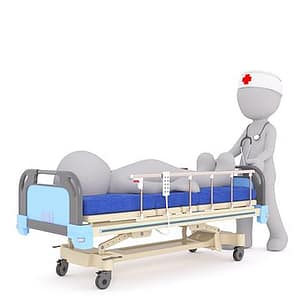Role of Certified Nursing Assistants in Healthcare
A certified nursing assistant (CNA) has many roles and works under the supervision of doctors to deliver and ensure quality care to patients. The job requires working long hours, and many responsibilities, caring for patients regularly gives the best rewards any profession could offer. Also, the abilities you learn as a certified nursing assistant can set you up for a long-term profession in the nursing field. In the state of Arkansas for instance, getting qualified as a CNA is pretty simple, all you need is to possess right attitude and enroll for cna classes in arkansas. In a matter of time, you will come out as a qualified CNA ready to get into the job market.
Tasks of certified nursing assistants in health
1. Feed, bathe and dress patients
Certified nursing assistants help patients with their fundamental needs. Largely, this implies helping them bathe, dress and feed themselves. These patients may include, the elderly residences of nursing homes, stroke casualties or people recovering from accidents, wounds or surgeries in a hospital.
2. Take patient vital illness signs
From checking the temperature to blood pressure, some CNAs are responsible for taking and recording patient’s vital signs. Routine tasks, for example, explaining the initial steps of a patient’s visit to a doctor’s office or doctor’s facility, which implies the CNA has the duty of making a positive initial introduction for the medical group.
3. Serve dinners, make beds and keep rooms clean
Except meeting patients’ essential needs, other obligations of a certified nursing assistant frequently include serving dinners to patients, making beds clean rooms. This can mean cleaning out bedpans and wash dirtied bed covers. It likewise implies finding the opportunity to have regular, one-on-one contact with patients, offering the sympathetic relationships that can help individuals endure the times of illness with dignity.
4. Set up medical equipment and help with some medical procedures
 Keeping and setting up medical equipment may include laying out equipment for the next patient exam or maybe moving huge, heavy medical equipment within the hospital. A few states allow CNA’s who have had the appropriate training to help with or play out some medical procedures, for example, drawing blood.
Keeping and setting up medical equipment may include laying out equipment for the next patient exam or maybe moving huge, heavy medical equipment within the hospital. A few states allow CNA’s who have had the appropriate training to help with or play out some medical procedures, for example, drawing blood.
5. Answer calls for help and watch changes in a patients
Working closely with patients every day, CNAs watch the obvious changes in a patient’s physical condition and also the changes of their emotional state. That instinct can have an inconceivable effect on helping patients endure recovery or come to terms with a long-term condition.
It doesn’t matter if they take a patient’s blood pressure before the specialist comes in, offer them breakfast in the morning or essentially simply listening, CNAs have a significant effect on the quality of care patients get in every medical facility.…

